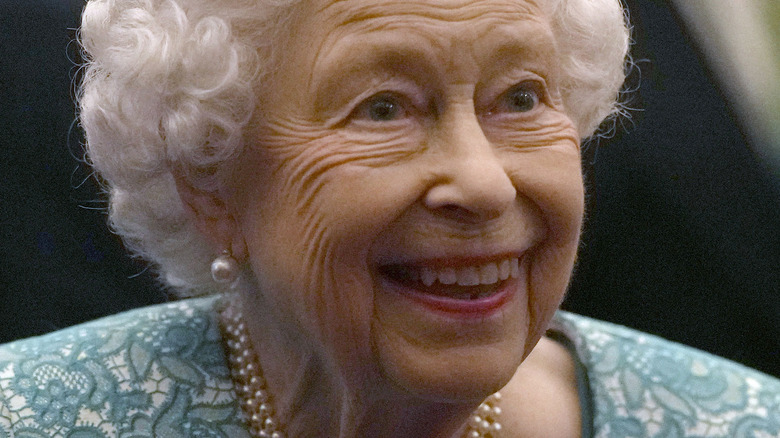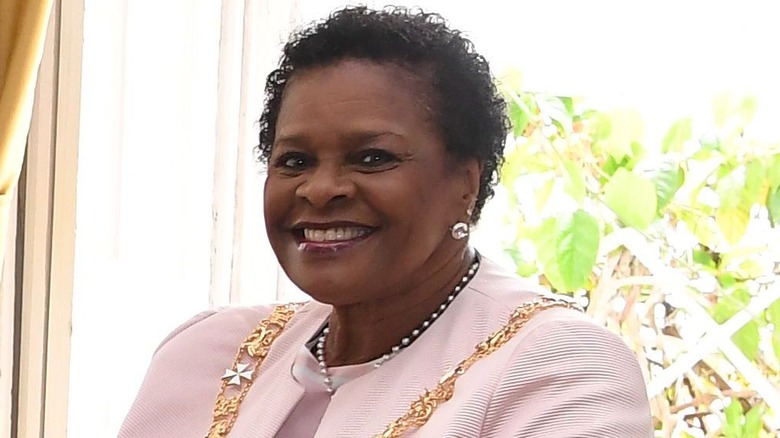Which Country Just Decided To Drop Queen Elizabeth?
A little over one month from the time of this report, Queen Elizabeth II will relinquish her role as the head of state from a soon-to-be completely autonomous republic that has been ruled by the British empire for centuries. As Axios reported on October 22, longtime Barbadian diplomat, judge, and statesperson Dame Sandra Mason, who obtained a two-thirds majority in Barbados' parliament, will be sworn-in as the country's first-ever president on November 30 — the same date the British monarch will, in light of the event, officially rescind her ceremonial place as commonwealth leader.
Per Axios, Mason said in a statement that the matter has been a longtime in the making. "Barbadians want a Barbadian head of state," Mason said in a September speech leading up to the country's election. Although Barbados has technically been an independent nation since the 1960s — Mason's inauguration date also marks the 55th anniversary of Barbados' independence from Britain — it's still considered a UK commonwealth. So, what does Mason's new role represent on a global scale?
Dame Sandra Mason will become the first president of Barbados
As Axios noted in their coverage of Dame Sandra Mason's upcoming presidential appointment, her swearing-in is a monumental triumph in forging the country's full autonomy and independence from Britain. In her statement to the press about the landmark sea change (via People), current Barbados Prime Minister Mia Mottley called the election a "seminal moment" in the island's history. "We have just elected from among us a woman who is uniquely and passionately Barbadian, does not pretend to be anything else [and] reflects the values of who we are," she added.
Like the majority of the sovereign states and principalities in the Caribbean, the country we now know as Barbados was the direct result of European imperialism. According to the Barbados government website, British colonists came upon the island in the early 17th century, which had been deserted by indigenous populations, and used it for producing tobacco, sugarcane, and other cash crops with the use of slave labor. While England's abolition act nearly 200 years later — one precipitated by slave-driven rebellions in an attempt to eliminate slavery from Barbados — did away with slavery in name, the colonial mindset ruled the economy and politics well into the 20th century.
Though Barbados has ruled by its own political system for six decades, it has technically remained a British commonwealth — that is, until Mason takes office on November 30, which will mark the country's transition to a full-fledged republic.


